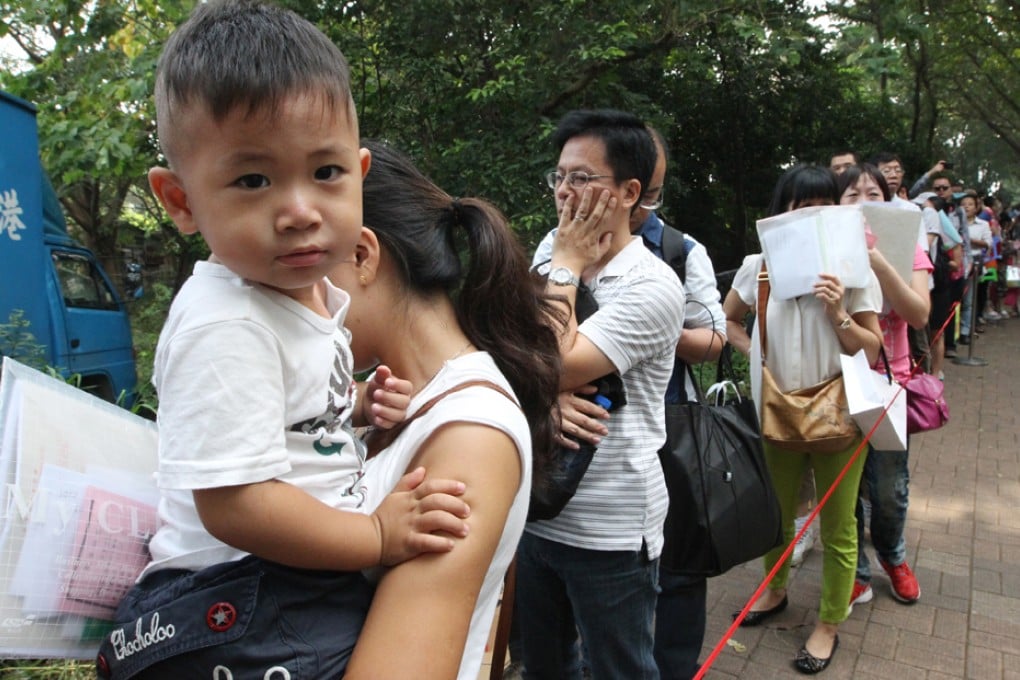More than half of all one-way Mainland migrants are jobless in Hong Kong
Leaked government document adds 9 out of 10 arrivals from mainland on permits since 1997 who did enter workforce have low-skill jobs

More than half of all one-way permit arrivals from the mainland remain outside the city's workforce.
That's according to a draft government document prepared ahead of a public consultation on population and immigration issues due to be launched tomorrow.
About 760,000 mainlanders have settled in Hong Kong through the one-way permit scheme since the handover in 1997, making up more than one in 10 residents.
The document states that only 48 per cent of those new arrivals have entered the job market, compared with 58 per cent of locals over the same time period.
The Post was shown the draft document by a source close to the public consultation exercise, who asked not to be named.
A partial explanation for the phenomenon is the large number of female one-way permit holders reuniting with their local husbands as housewives.
Of those permit holders who did find jobs, 87 per cent are engaged in lower-skilled work.